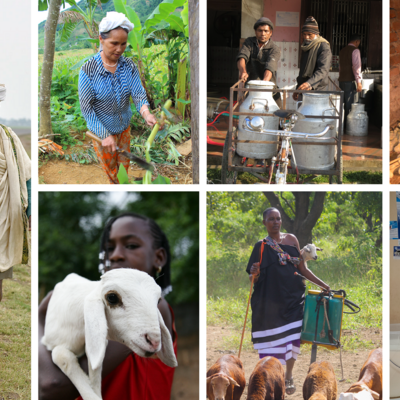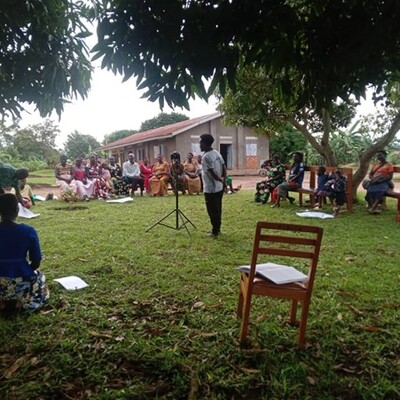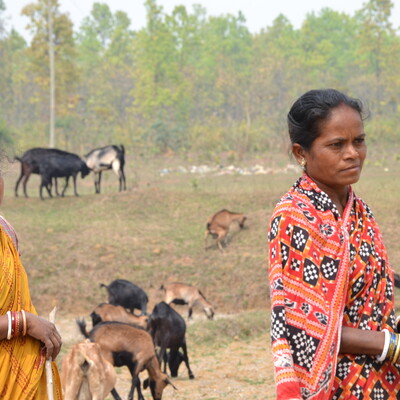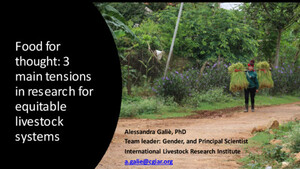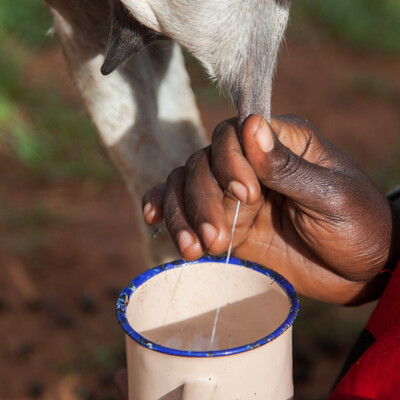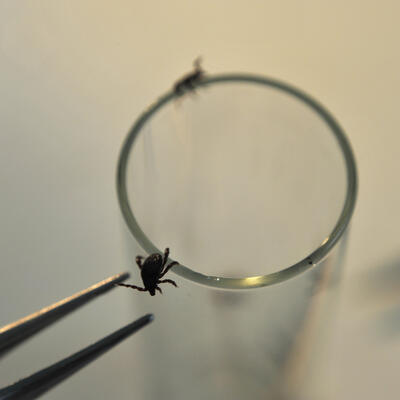

Farmer-led approach supports socially inclusive innovations in Kenya's dairy sector
ILRI News
Posted on
by
- Esther Omayio
- Tanaya DuttaGupta
- Renee Bullock
- Emmaculate Kiptoo
- Nathan Maiyo
- Birgit Habermann
- Todd Crane
Esther Omayio, a livestock extension officer shares her experience working with dairy households in Kenya using the Pioneer Positive Deviance approach
In rural Kenya, adaptation practices in dairy shape and are shaped by gender relations in households. Men own the cows and control income, while women provide much of the labour. Working with 'adaptation pioneer households', the Pioneer Positive Deviance (P-PD) approach supports farmer-led innovation that is sustainable and socially inclusive. Esther Omaiyo, a livestock extension officer in Nandi County with over 15 years of experience, shares insights into her work and how the P-PD approach to scale with households is different and impactful.
Omayio is an extension officer who has conducted countless training sessions, organized farm visits, and demonstrated best practices. However, the conventional approach often excluded women, who are key players in day-to-day dairy activities.
'In fact, three-quarters of the people who attend the extension activities are men,' Omayio explained.
Meanwhile, it is typically women and children who carry out daily practices such as feeding and milking the cows.
The P-PD approach offers a refreshing change: 'It is very different from what we normally do as extension,' said Omayio.
She elaborated that they had been collaborating with ILRI since 2019, identifying local farmers who were outperforming others in dairy farming, particularly in how they adapted to impacts of droughts and rainfall variability by implementing local innovative feed and fodder practices.
These farmers are from the same area but have achieved better results than their neighbours. Omayio added that they had helped ILRI locate these farmers, also known as ‘adaptation pioneers’, and supported the adaptation pioneer households in organizing farmer-led field days for knowledge exchange.
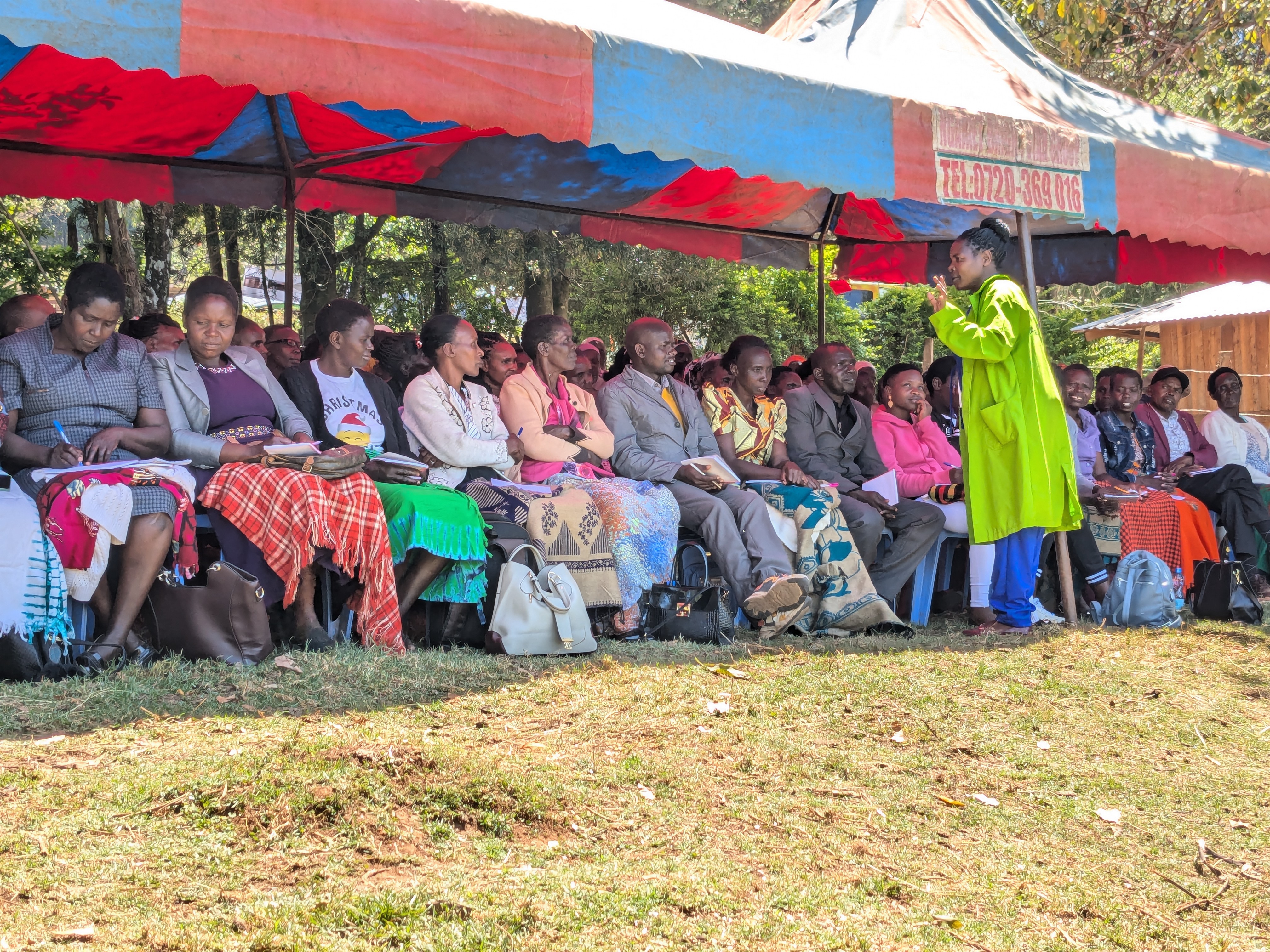
A safe space to learn and lead
This approach also creates opportunities for landless youth to participate in the dairy value chain.
'If you want to include the youth and women, you look at the norms. Where can they practice? Where can they come in? What is the entry point?' Omayio emphasized.
Youth, for example, could engage in activities like forage chopping for silage, or value addition by turning milk into yoghurt to sell.
While the P-PD approach has been applied to dairy production systems, Omayio sees its potential to be scaled into other agricultural sectors. For her, it is relevant because it is inclusive and there are clear principles on how to engage members of households. The household approach can be easily adapted to crops like coffee or avocado, as well as livestock farming.
In fact, Omayio has already started applying this approach in other projects she manages: 'In chicken farming, I have taken about 482 women who belong to common interest groups of chicken farming. These women then serve as ‘lead’ farmers for their communities.'
Sustaining impact, catalyzing change
As a powerful approach to guide sustainable and socially inclusive adaptation, Omayio believes the P-PD approach has the potential to be a long-term and self-sustaining solution to climate crisis affecting livelihoods.
It is scaling farmer-to-farmer, spreading technologies without the continued support of external agencies since adaptation pioneer households continue to share knowledge and skills with their neighbors and networks. Omayio emphasized that it is important to create and sustain linkages between adaptation pioneer households and local governments or other actors to ensure that this knowledge sharing continues. 'It is more sustainable than the conventional way' because farmers no longer need to solely rely on extension.
Omaiyo's experience shows that when local farming households scale what works well for them through their networks, there is vast potential for positive changes in intra-household relations and women’s agency in spearheading climate adaptation. By encouraging women, youth and men to lead and learn together, the approach fosters more equitable access to information and resource allocation within dairy households. Omayio highlights that it is important to move beyond narrow technical focus and consider social factors like gender relations within households.
Omayio notes, 'Men now understand that they will not be disadvantaged when the women are empowered with some activities.'
When thinking of the future, Omayio shared: 'If I was the governor, I would take this approach because it will assist so many farming households.'
By scaling with households, the P-PD approach ensures locally led adaptation can be socially inclusive, guiding the way for more resilient and equitable households and communities in Kenya and beyond.
Acknowledgement
This activity was implemented under the ILRI Livestock and Climate Initiative, which is supported through the CGIAR Trust Fund.
You may also like
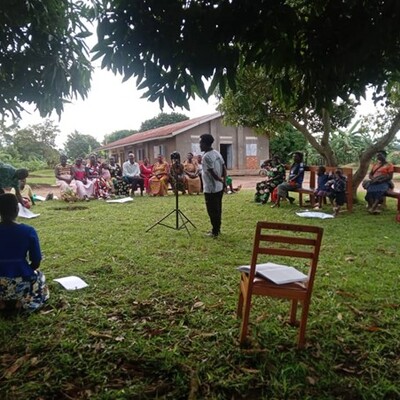
ILRI News
Addressing gendered constraints to women’s empowerment and restrictive gender norms: The case of engaging women and men in pig-related business activities in Uganda

ILRI News
Burkina Faso sets up One Health community platforms to improve food security and public health in rural areas
Related Publications

Gender considerations in innovation platforms in the livestock sector in Mali
- Gning, S.B.
- Dione, Michel M.
- Sene, M.T.D.
- Sow, Ahmadou
- Fall, Abdou

Gender relations and women's empowerment in small-scale irrigated forage production in the Amhara and SNNP Regions of Ethiopia
- Omondi, Immaculate A.
- Njuguna-Mungai, Esther
- Bezabih, Melkamu
- Teufel, Nils
- Galiè, Alessandra
- Njiru, Nelly
- Kariuki, Eunice
- Mulema, Annet Abenakyo
- Baltenweck, Isabelle
- Jones, Christopher S.
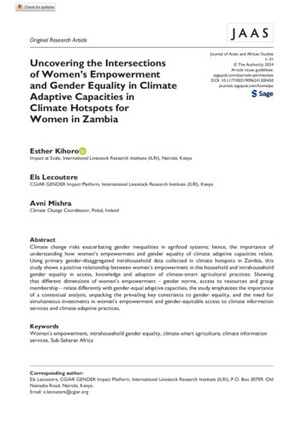
Uncovering the Intersections of Women’s Empowerment and Gender Equality in Climate Adaptive Capacities in Climate Hotspots for Women in Zambia
- Kihoro, Esther
- Lecoutere, Els
- Mishra, Avni

A qualitative inquiry of the effects of social protection and nutrition education on climate resilience of rural women and their households in southern Bangladesh
- DuttaGupta, Tanaya
- Roy, Shalini





